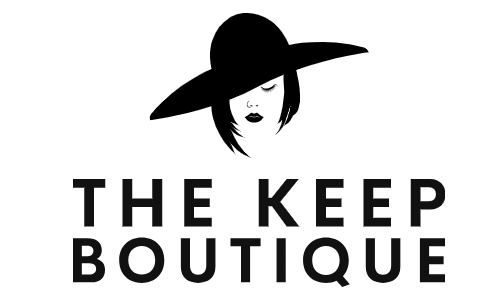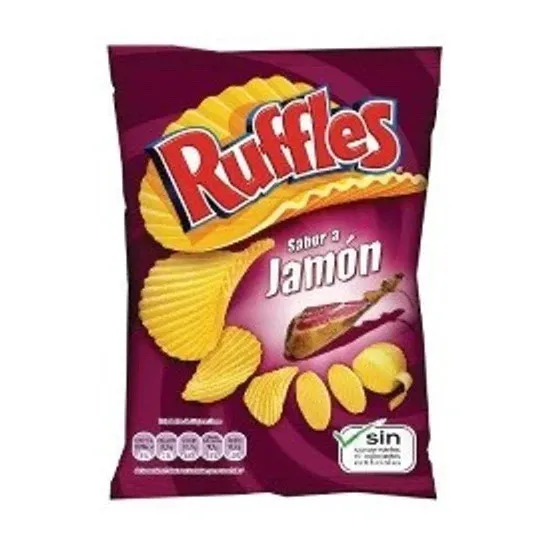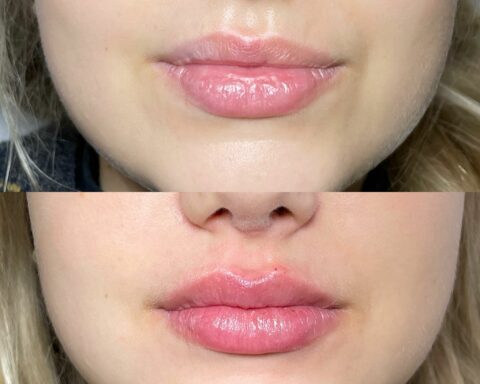A serious food safety alert has been issued in the UK, as packets of Ruffles Sabor a Jamón crisps have been urgently pulled from supermarket shelves. The recall, which affects stores across Northern Ireland and Scotland, stems from a major labelling oversight involving undeclared allergens—specifically milk and soya—posing a potential life-threatening risk for consumers with allergies or intolerances.
As the Food Standards Agency (FSA) moves to mitigate the public health threat, this article delves into the full scope of the recall, what consumers should do, the underlying causes, regulatory responses, and what this means for food safety in the UK.
Why Were Ruffles Crisps Recalled?
Hidden Allergens Not Labelled in English
At the heart of the issue is improper allergen labelling. Ruffles Sabor a Jamón crisps, a Spanish-style ham-flavoured snack distributed in the UK by 3D Trading, contain milk and soya—two of the most common food allergens. These ingredients were not clearly declared in English on the packaging, which is a direct violation of UK food safety standards.
This labelling omission could potentially lead to dangerous allergic reactions among unaware consumers.
Official Product Details
- Product Name: Ruffles Sabor a Jamón (Ham Flavour)
- Pack Size: 150g
- Batch Code: All batches affected
- Best Before Dates: All dates
- Affected Areas: Northern Ireland and Scotland
Anyone who has purchased this product and suffers from a milk or soya allergy is strongly advised not to consume it.
The Role of the Food Standards Agency
Understanding Allergy Alerts
The FSA issued an official Allergy Alert, a critical mechanism used to inform the public when foods pose unexpected health risks. Allergy Alerts are only used when there’s a confirmed risk of allergic reaction due to undeclared ingredients or contamination during production.
In this case, the FSA deemed the omission of English allergen information severe enough to warrant an immediate recall.
What the FSA Said
In its official notice, the FSA stated:
“This product contains milk and soya making it a possible health risk for anyone with an allergy or intolerance to milk or milk constituents and/or an allergy to soya.”
They advised affected consumers to return the crisps to the place of purchase for a full refund and not to consume them under any circumstances.
How Food Recalls Work in the UK
Recall vs Withdrawal
The UK food safety framework distinguishes between two types of product removals:
- Withdrawal: This happens when a product is removed from sale before it reaches consumers.
- Recall: A more serious measure, involving retrieving products that have already reached customers.
In the case of Ruffles crisps, a recall was deemed necessary because the affected items had already been sold in stores.
In-Store Notices
Affected retailers are legally obliged to display clear notices informing customers of the recall. These notices explain the issue, the health risk involved, and the steps consumers should take. In this case, the notices are being displayed in all participating retail outlets that stocked the product.
A Pattern of Safety Alerts: The Isle of Mull Cheese Incident
STEC Contamination in Blue Cheese
The Ruffles recall isn’t an isolated case. It follows closely on the heels of another urgent recall involving Isle of Mull Cheese’s Hebridean Blue Cheese. Food Standards Scotland (FSS) issued a health alert after batches were found to possibly contain Shiga toxin-producing Escherichia coli (STEC), a dangerous strain of bacteria.
Consuming products contaminated with STEC can lead to serious food poisoning, and in extreme cases, life-threatening kidney damage.
FSS Warning
FSS warned the public about the cheese, urging retailers and consumers to take appropriate actions:
“Some items may contain Shiga toxin-producing Escherichia coli (STEC), which can trigger severe food poisoning and life-threatening kidney problems.”
Other cheese products from Isle of Mull are not believed to be affected, but the situation further illustrates the challenges in maintaining safe food supply chains.
The Dangers of Allergen Exposure
Why Accurate Labelling Matters
For individuals with food allergies, accurate ingredient labelling isn’t just a convenience—it’s a necessity. Exposure to allergens like milk or soya can result in mild to severe symptoms, including:
- Skin rashes
- Breathing difficulties
- Anaphylaxis (a potentially fatal reaction)
Lack of clear labelling, especially in the dominant local language, significantly increases the risk of accidental exposure.
How Often Does This Happen?
Unfortunately, allergen-related recalls are not uncommon. According to the FSA, they issue dozens of alerts each year due to undeclared allergens or mislabelled food items.
Consumer Rights and Safety Measures
What Should Consumers Do?
If you have purchased the Ruffles Sabor a Jamón crisps:
- Check the packaging: If the allergen labelling isn’t clearly presented in English, do not consume the product.
- Return the item: Bring it back to the store where it was bought for a full refund—no receipt necessary.
- Report any reactions: If you or someone else has had an adverse reaction after consuming the crisps, seek medical attention and report the case to the FSA.
Compensation and Refunds
While the FSA does not administer compensation directly, retailers are obliged to provide refunds for recalled items. In most cases, you won’t need a receipt.
Retailer and Manufacturer Responsibilities
3D Trading’s Accountability
3D Trading, the distributor of the affected product, is expected to ensure that imported goods meet all UK labelling and safety requirements. This includes translating important allergen information into English and ensuring compliance with the Food Information Regulations 2014.
Retailer Obligations
Retailers who sold the affected crisps are responsible for:
- Displaying recall notices
- Removing the product from shelves
- Issuing refunds to consumers
- Ensuring replacement stock is safe and correctly labelled
The Legal Framework for Food Recalls
Governing Regulations
Several UK regulations guide food safety and recall procedures, including:
- The Food Safety Act 1990
- The General Food Law Regulation (EC) 178/2002
- The Food Information to Consumers (FIC) Regulation
These laws provide the FSA with authority to enforce recalls and protect public health.
Penalties for Non-Compliance
Manufacturers or distributors who fail to comply with recall notices can face severe penalties, including fines, suspension of trading licenses, or legal action.
Allergy Awareness in a Global Market
Import Challenges
The Ruffles crisps recall highlights broader issues in the globalisation of food markets. Imported food products must meet local safety and labelling standards. Failure to do so can result in health risks and erosion of consumer trust.
Increasing Vigilance
As consumers become more health-conscious, especially regarding allergens and intolerances, the demand for transparency in food labelling is growing. This includes:
- Clear allergen symbols
- Translated labels
- QR codes for detailed ingredient breakdowns
Learning From Past Incidents
Case Study: Pret a Manger and the Sesame Allergy Tragedy
In 2016, a 15-year-old girl tragically died after consuming a Pret a Manger baguette that contained sesame seeds not listed on the label. The incident led to widespread reform in food labelling laws, resulting in “Natasha’s Law,” which mandates full ingredient listings on all pre-packed for direct sale (PPDS) foods.
Applying Lessons
Events like this and the current Ruffles crisps recall demonstrate that labelling laws save lives. Enforcing them consistently is vital to maintaining public trust and safety.
Public Reaction and Media Coverage
Rising Consumer Awareness
Public response to the recall has been swift. Allergy advocacy groups have circulated the alert on social media, and major news outlets have covered the situation extensively.
Support Resources
Several organisations offer support and information for consumers dealing with food allergies:
- Anaphylaxis UK
- Allergy UK
- Food Standards Agency
- Food Standards Scotland
These organisations provide helplines, guidance, and updates on food safety alerts.
Conclusion
The urgent recall of Ruffles Sabor a Jamón crisps underscores a critical truth in food safety: accurate, clear labelling can mean the difference between life and death. With milk and soya allergens omitted from the English packaging, consumers with intolerances were placed at risk, prompting swift action from both 3D Trading and the Food Standards Agency.
As global food distribution continues to rise, so too must vigilance from manufacturers, retailers, and regulatory bodies. The takeaway is simple: safety first. Whether you’re an importer, a retailer, or a customer, staying informed and cautious can help prevent unnecessary tragedies.









Follow Me